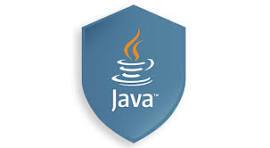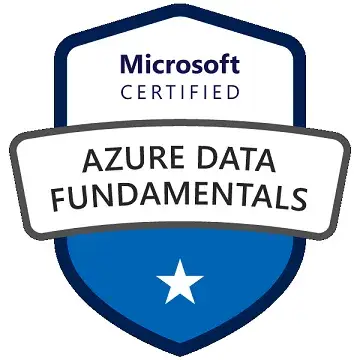Learn JAVA Programming - Beginner to Master
- (0 Reviews)
- 0 students enrolled
Learn JAVA Programming - Beginner to Master
Deep Dive in Core Java programming -Standard Edition. A Practical approach to learn Java. Become a Java Expert
- (0 Reviews)
- 0 students enrolled
Course Content
Requirements
- Basic Knowledge of Programming Required Tools : JDK IDE : Eclipse or IntelliJ
Description
From laying the foundation with Java basics to mastering advanced concepts like multithreading and functional programming, this comprehensive course equips you with the skills to develop robust, scalable Java applications. Through hands-on exercises and practical examples, you'll gain proficiency in Java programming, enabling you to tackle diverse challenges in software development with confidence
Module 1: Introduction
In this module, we delve into the fundamentals of Java, exploring why it's a popular choice for development. We also decipher the distinctions between JDK, JRE, and JVM, laying the groundwork for understanding Java's execution environment.
Module 2: Java Basics
Covering the essentials, this module walks you through installing JDK, creating your first "Hello World" application, and introduces you to IDEs like Eclipse and IntelliJ. You'll grasp the basic syntax of Java, compile code into bytecode, and execute programs on the JVM.
Module 3: Primitive Data Types, Variables, and Arrays
Understanding data types and variables is crucial in Java programming. This module acquaints you with primitive types, variable declaration, and arrays, setting the stage for more complex data manipulations.
Module 4: Operators and Operations with Primitive Types
Here, you'll explore Java's operators, mathematical operations, and handling user input from the console. Through practical programs, you'll learn to perform calculations and understand Java's memory model.
Module 5: String in Java
Strings are ubiquitous in programming. This module covers string creation, string pool, regular expressions, and string formatting, empowering you to manipulate textual data effectively.
Module 6: Control Structures
Control structures dictate the flow of execution in Java programs. From if-else constructs to switch statements, you'll learn how to control program behavior based on conditions and user input.
Module 7: Iteration Statement (Loops) in Java
Loops are essential for repetitive tasks. This module covers various loop constructs in Java, including while, do-while, for, and for-each loops, along with jump statements like break and continue.
Module 8: Methods
Methods encapsulate reusable code blocks in Java. This module dives into method creation, parameter passing mechanisms, and recursive methods, enabling you to modularize your code effectively.
Module 9: Enumerations in Java
Enumerations provide a way to define collections of constants in Java. This brief module introduces enumeration types and their applications, such as defining message priorities.
Module 10: Debugging
Debugging is a crucial skill for any programmer. This module introduces debugging techniques within popular IDEs, helping you identify and resolve errors in your code effectively.
Module 11: Object-Oriented Programming (OOPs Concepts In Depth)
Object-oriented programming is the cornerstone of Java development. This extensive module covers OOP principles, classes, objects, inheritance, polymorphism, and design principles like SOLID, preparing you for building robust, scalable applications.
Module 12: GIT
Version control is essential for collaborative development. This module provides an overview of Git, including branching, stashing, and basic collaboration workflows.
Module 13: Package
Packages are used to organize Java code into namespaces. This module covers package creation, importation, and management, along with exploring predefined classes and the java.lang hierarchy.
Module 14: Exception Handling
Errors and exceptions are inevitable in programming. This module equips you with the skills to handle exceptions gracefully, covering exception hierarchies, try-catch blocks, and custom exception creation.
Module 15: Collection Framework
Collections facilitate data manipulation and storage in Java. This comprehensive module delves into collection interfaces, lists, sets, queues, maps, and comparators, empowering you to work efficiently with diverse data structures.
Module 16: Generic Methods
Generics enhance code reusability and type safety. This module introduces generic methods, allowing you to write flexible, type-safe code in Java.
Module 17: Functional Programming (Lambda & Method References)
Functional programming introduces concise, expressive ways to manipulate data. This module covers lambda functions, method references, functional interfaces, and the Stream API, enabling you to leverage modern programming paradigms effectively.
Module 18: Garbage Collection
Java's automatic memory management simplifies memory allocation and deallocation. This module provides insights into garbage collection mechanisms, advantages, and Java API related to memory management.
Module 19: Multithreading
Multithreading enables concurrent execution, enhancing program performance. This extensive module covers thread creation, synchronization, thread pools, and common concurrency issues like deadlock and livelock.
Module 20: Input and Output Streams
Input and output operations are fundamental for interacting with external resources. This module covers file handling, stream operations, serialization, and cloning, enabling seamless data manipulation in Java applications.
Recent Courses
- June, 23rd 2025
- 3
This course plan outlines a comprehensive curriculum for a prompt engineering course, designed to equip learners with the ski..
- 1699.00₹
2000.00₹
- June, 28th 2025
- 12
In an era where technology is seamlessly integrated into our daily lives, understanding the synergy between Embedded Systems..
- 1599.00₹
2000.00₹
- May, 22nd 2024
- 0
Microeconomics is an essential component of economics as a whole, as it helps us understand how individual decisions and inte..
- 799.00₹
999.00₹
About Instructor

A results-oriented professional with 5+ years of experience in application development, maintenance, and support, I specialize in J2EE and the Spring framework, excelling in designing and developing web-based applications. Proficient in deploying on Apache Tomcat, I bring expertise in web service testing with tools like Postman and resolving production environment-specific issues. I have successfully created APIs using Spring Boot and demonstrated effective team management and work allocation. With excellent communication skills, I am a collaborative team player with leadership qualities, ready to contribute to project success.






.png)


